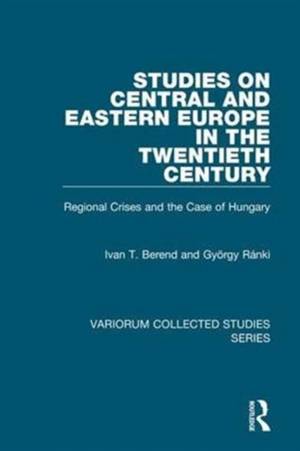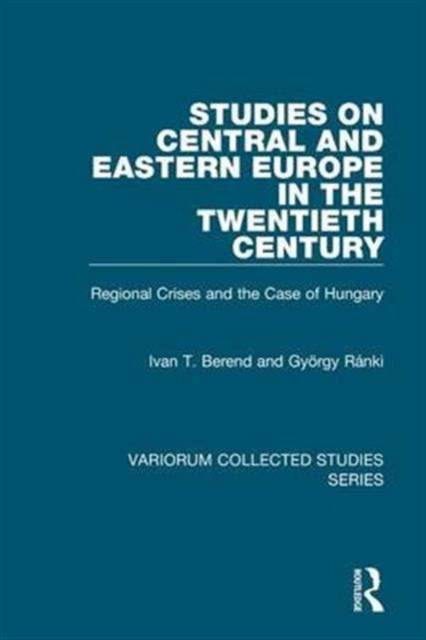
- Afhalen na 1 uur in een winkel met voorraad
- Gratis thuislevering in België vanaf € 30
- Ruim aanbod met 7 miljoen producten
- Afhalen na 1 uur in een winkel met voorraad
- Gratis thuislevering in België vanaf € 30
- Ruim aanbod met 7 miljoen producten
Zoeken
Studies on Central and Eastern Europe in the Twentieth Century
Regional Crises and the Case of Hungary
Ivan T Berend, György Ránki
€ 140,95
+ 281 punten
Omschrijving
This volume centres on the collaborative work of Ivan Berend and György Rànki, begun in Hungary in the 1950s and continuing till Ranki's death in 1988, but includes papers by each individually as well as those written jointly. The subject is the social and economic history of Central and Eastern Europe in the 19th and 20th centuries, with a particular focus upon Hungary. The first part looks at the troubled German-Hungarian relations during Hitler's rule; although focusing on Hungary, it also provides an understanding of the economic ties between Germany and Central and Eastern Europe during the turbulent war years. The economic and political problems of the region in the interwar years are dealt with in the second part. Two of the four studies in the final section present the efforts and strict limitations of reforms in state socialist Hungary. The other two analyze the post-communist economic transformation of Central and Eastern Europe during the 1990s in a broad international context.
Specificaties
Betrokkenen
- Auteur(s):
- Uitgeverij:
Inhoud
- Aantal bladzijden:
- 362
- Taal:
- Engels
- Reeks:
Eigenschappen
- Productcode (EAN):
- 9780860788874
- Verschijningsdatum:
- 25/03/2002
- Uitvoering:
- Hardcover
- Formaat:
- Genaaid
- Afmetingen:
- 149 mm x 224 mm
- Gewicht:
- 648 g

Alleen bij Standaard Boekhandel
+ 281 punten op je klantenkaart van Standaard Boekhandel
Beoordelingen
We publiceren alleen reviews die voldoen aan de voorwaarden voor reviews. Bekijk onze voorwaarden voor reviews.








